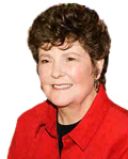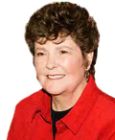Intelligence
Life Lessons from Teenage "Brains" of the 1960s
Presidential Scholars reveal what intellectually gifted teens learn from life.
Posted April 14, 2012

Most people have never heard of the Presidential Scholars program, although it has been around for nearly 50 years. To receive national recognition for their academic achievements, as well as artistic accomplishments, community service, and leadership, approximately 140 high-school seniors from across the United States are invited to travel to Washington each year. The events of “National Recognition Week” include visits with Congressional representatives, performances at the Kennedy Center, workshops and seminars, and an awards ceremony at which each scholar receives a medal from the President, the Secretary of Education, or some other high-ranking official.
The program began in 1964. The first Presidential Scholars, who received their award from Lyndon Johnson, are now bouncing their grandchildren on their arthritic knees and filing for their Social Security. They are also asking themselves, "What lessons has life taught me?" Educational researchers Felice Kaufmann and Dona Matthews asked them that same question. The results of their longitudinal study of 145 individuals from the 1964–1968 cohort of Presidential Scholars were published this month in Roeper Review.
“We wanted to hear what they [the Presidential Scholars] think about the roles that academic, professional, and personal achievement have played in their lives …” wrote Kaufmann and Matthews. “Participants in this study share their wisdom about giftedness and talent as it develops across the life span and offer advice to parents, educators, and highly capable young people.”

George Rosen, a 1964 Presidential Scholar from Illinois, received his medal from Lyndon Johnson.
Before cataloging the lessons that life has taught the “best and brightest” of mid-1960s teens, the researchers looked at some of the revealing characteristics of the group. Overall, compared to all teens, the Scholars tended to come from relatively small families. Ten percent were only children and a third had only one sibling. In general, also, they had well-educated parents, compared to the norm of the time. However, not every Scholar came from an education-rich background. Nine of the Scholars reported fathers who never finished high school or never earned a GED.
While several of the Scholars reported that school work was simple for them in their precollege years, their growing up was seldom easy. Sixty percent of the Presidential Scholars reported experiencing significant traumatic events or extreme conditions before the age of 18. The most frequently noted early stressors were discrimination or bullying (24 percent); economic hardship (17 percent); frequent family marital discord (17 percent); and death of a significant family member (19 percent).
Adult life hasn’t been smooth sailing for the Scholars, either, and their intellectual prowess has, more often than not, been a source of difficulty. A majority of the participants (59 percent) report having academic, social, or personal problems in adult life related to their level of ability or achievement. Women had significantly more problems of this kind than did men.
Says ’64 Presidential Scholar Mehrene Larudee: “Do not assume that the high level of intelligence and achievement that were recognized at the 1964 Presidential Scholar activities has necessarily led to fame or fortune in every case; that instead, there exist many factors (including being the victim of crime; having a catastrophic illness in the family; being affected by the current economic crisis; and so on) that affect people of high intelligence in much the same way they affect everyone else in the United States.”
That having been said, the Scholars have, in general, continued to be high achievers in their adult lives, although often not in the ways they anticipated as teens. Many said they have learned that intense effort and perseverance count for more than talent. “I’ve learned that ‘brilliance’ doesn’t make nearly as much difference as hard work,” observed one Scholar.
And the Scholars have generally been successful in their pursuits, not surprisingly in academics where 20 percent earned master’s degrees and 70 percent earned doctoral or professional degrees, compared to about 12 percent of the general population in the same age group, but also in family life and employment. At this stage of their lives, 81 percent reported being married or in marriage-like relationships (including domestic partnerships and civil unions), a full 10 percentage points higher than the national average. In their occupations, Scholars have been highly diverse in their career choices, but nearly all have achieved job satisfaction. Eighty percent reported having derived “a great deal of enjoyment” from their work, with 19 percent reporting “some enjoyment.” Only one individual reported having experienced “little enjoyment” from work.
All this achievement and enjoyment does not, however, necessarily translate into high earnings. Thirty-five percent of the Scholars reported that their peak annual income never rose above $100,000. Sex differences were substantial and statistically significant: Women were more than twice as likely as men to have earned peak incomes under $100,000 per year. However, four in every ten of the female Scholars reported being “very satisfied” with their financial situation, with only one in four among the males feeling the same way.
Despite their high levels of accomplishment, some Scholars reported that early accolades spawned extremely, perhaps unrealistically, high expectations of success, which led to later disappointment and dissatisfaction. “Although most of the Scholars made peace with the high expectations placed on them (by others and themselves), some continue to struggle,” reported the researchers. “I have not accomplished as much as I thought I might . . . I am no longer in the upper 1 percent or even 5 percent of the group against which I measure myself. … I frequently must give myself permission to be an above-average member of my profession, not a superstar or household name,” said one Scholar. “No matter what you accomplish, it’s never enough. You feel elation at the time, but that feeling is soon supplanted by yes-but-you-could-have-done-more/better,” said another.
After nearly fifty years post-high school, Presidential Scholars report redefining success and making peace with themselves and their intellectual gifts. One Scholar put it this way, “Success is enjoying what you do, feeling satisfied with your status in life, and making progress toward a goal that is bigger than yourself. . . . There’s nothing more satisfying than feeling you have the power to make the world at least marginally better than it was.”
Presidential Scholars rarely become rich and famous, but they make a difference, and they achieve a level of life satisfaction that many others might envy: Nearly nine out of ten reported feeling “satisfied” or “very satisfied” with themselves and their lives. From the perspective of imminent old age, they offered their views on living, parenting, and educating:
• “Working at something that I enjoy doing is critical to my personal happiness. . . . I tell my girls—do anything you want for work, but make sure you like to do it.”
• “Getting off the treadmill is a good thing. High-achieving kids are pressured into programming every minute of their lives. There also needs to be time to assess, to relax, to enjoy life, and to give back.”
• “I would encourage parents and teachers to treat children as genuinely unique individuals, to worry less about their meeting conventional standards and devote more attention to helping them develop their particular talents and interests.”
• “Teach your kids to have healthy self-esteem: not arrogant, not too self-effacing. Make sure that early on they have healthy experiences of things being too hard for them where they can practice and improve, such as music lessons or a sport they can’t do right away, so they understand they are not expected to be able to do everything easily . . . Give them time to be creative and daydream. . . . Don’t forget to expect them to do chores and teach them how to handle money like everyone else . . .”
Kaufmann and Matthews conclude from their study: “[A]s educators and parents we can support and encourage talent development by recognizing individual achievement, but we must do so carefully. When we honor young people’s achievement, we must help them understand that an award is a beginning, that early promise must be followed by years of hard work and perseverance, that equally important are cultivating good relationships with mentors and colleagues, seeking opportunities for growth and development. . . . ”
One Scholar summarized the life course of high-achieving youth in one simple, yet powerful, statement. “You may be smart, but common sense takes time to develop.”
Let Us Hear from You:
Let Us Hear from You:
For More Information:
Felice A. Kaufmann & Dona J. Matthews (2012): On Becoming Themselves: The 1964–1968 Presidential Scholars 40 Years Later, Roeper Review, 34:2, 83-93
Dona Matthews’s website and blog.




